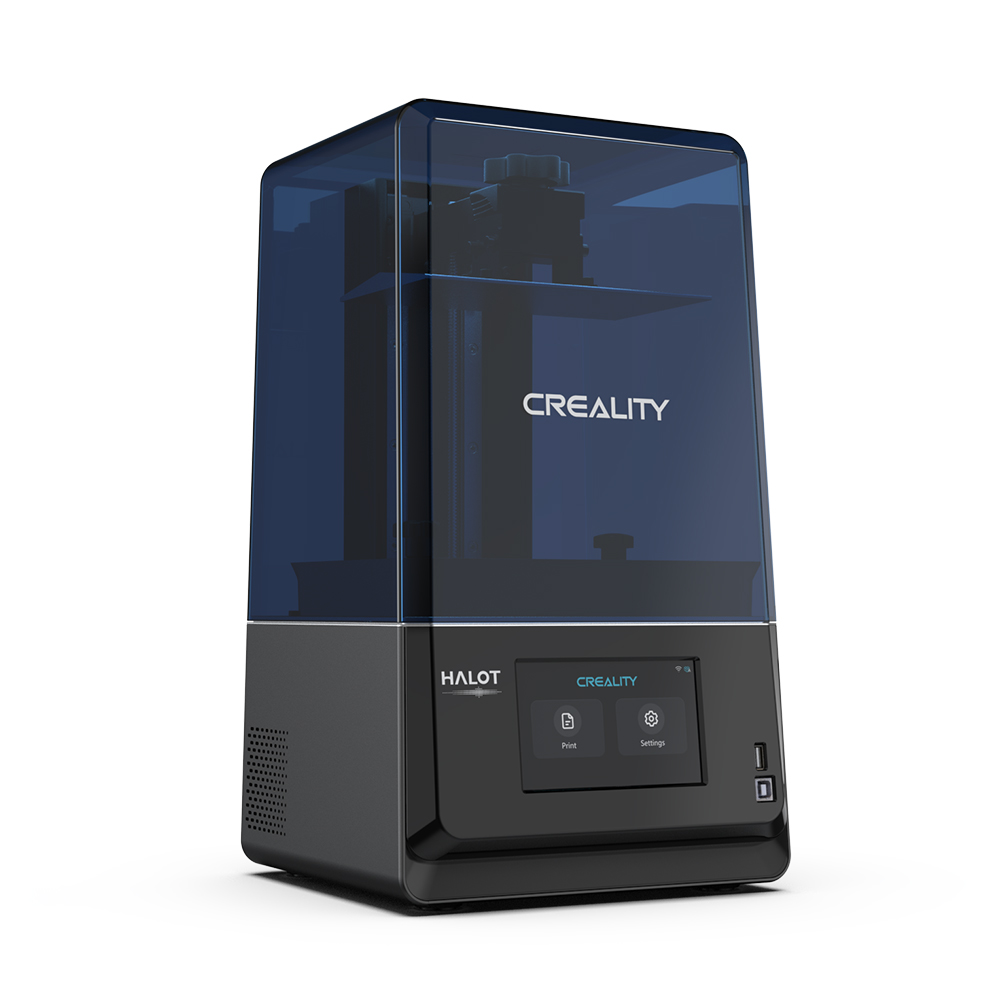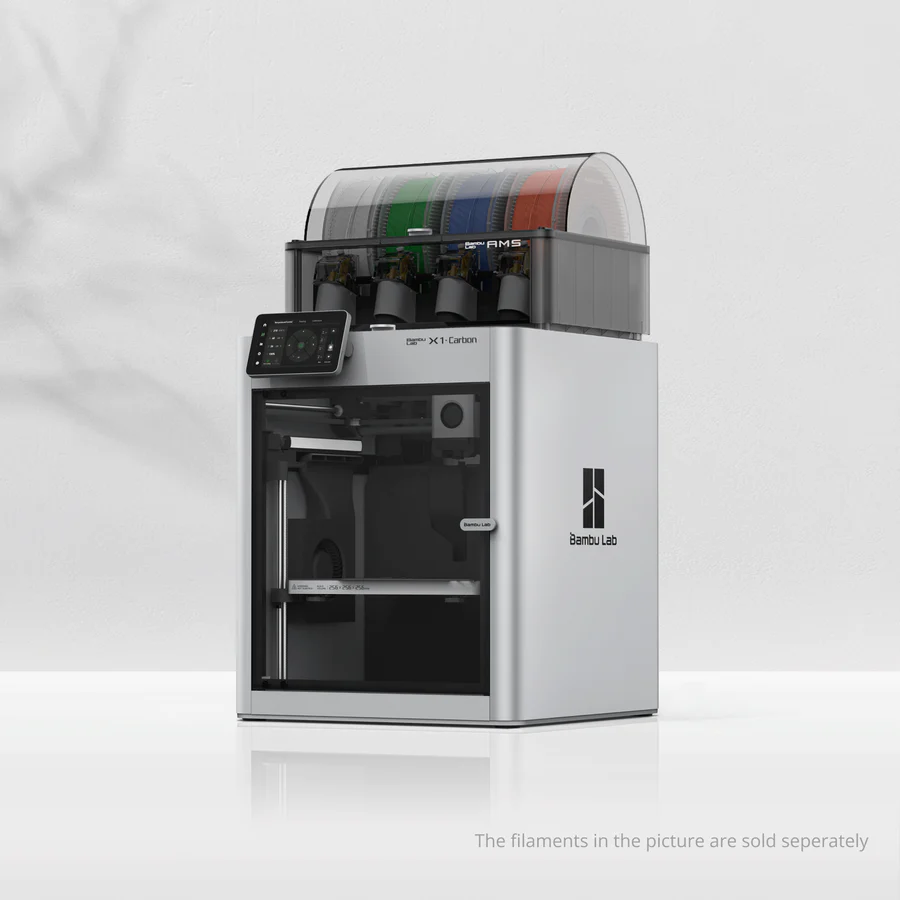Compare Halot One Plus vs X1 carbon
Comparison between the best 3D printers
Choose the best 3D printer at the best price. The cheapest 3D printers are here.
Buy a 3D printer here with 3D Fila.
 |
 |
|
| Model | Halot One Plus[BUY Halot One Plus] |
X1 carbon |
| Printing Material | Resin | Filament |
| Buy Resin for Creality 3D Halot One Plus | Buy Filament forBambu Lab X1 carbon | |
| Estimated price | $399,00 | $1449,00 |
| Manufacturer | Creality 3D | Bambu Lab |
| Release Year | 2022 | 2023 |
| Print Volume [mm] | 102x172x160 | 256x256x256 |
| Printer Size [mm] | 236x245x416 | 389x389x457 |
| Weight [kg] | 6,8 | 14,13 |
| Power Loss Recovery | NO | YES |
| Maximum Resolution [mm] | 0,1 | |
| Processor | Quad ARM A7 1.2 GHz | |
| Display | Touchscreen 5'' | |
| Power Supply | 350 W | |
| Connectivity | USB / Wi-Fi | Wifi, Bambu bus, Cartão SD |
| Operating systems | Windows, Linux, Macbook | |
| Date of registration in the system | 2022-10-11 | 2024-04-10 |
| Release date | 2022 | 2023 |
| Extra features | Crealitys Halot-One Plus printer stands out for its 4K+ resolution that delivers sharp details and consistent surfaces. It features a fast and responsive 5-inch LCD interface, as well as easy-to-use Halot Box software. It offers Wi-Fi connectivity and remote print monitoring, as well as an integrated air filtration unit, a rare feature in this price range. The Halot-One Plus is designed for the prosumer market, combining high quality with advanced features such as Wi-Fi and air filtration. During testing, it stood out for implementing these features at an affordable cost, while maintaining functionality. It features an attractive design with a UV-resistant blue cover and a robust dual rail system for the Z-axis, ensuring smooth and consistent movements. The large LCD and high resolution of the LCD mask (4320 x 2560) are other strong points, allowing for fine details and textures in prints. | The Bambu Lab X1 Carbon revolutionizes 3D printing with stunning design, high print speeds, and a streamlined user experience. It stands out with its CoreXY system, a hotend capable of reaching 300°C, allowing for a wide range of filaments. Its LiDAR-assisted bed leveling system, vibration compensation, and AMS multicolor printing capability raise the industry standard. Print quality is impressive, with the ability to fine-tune for perfection. The X1 Carbon, with its closed build volume, not only promises but also delivers one of the most advanced 3D printing experiences available to consumers. |
| Support for multiple colors and materials (AMS and CFS) | NO | YES |
Notes * |
||
| Cost-benefit | 8 / 10 | 7 / 10 |
| Hardware | 1.2 / 10 | 5.6 / 10 |
| Tela | . | . |
| Print volume | 3 / 10 | 4 / 10 |
| Performance | 9 / 10 | 4 / 10 |
| [BUY Halot One Plus] |
Conclusion |
| In conclusion, when comparing the Creality 3D Halot One Plus and the Bambu Lab X1 Carbon, it's clear that both printers cater to distinct user needs and budgets. The Halot One Plus is an excellent choice for budget-conscious users or prosumers looking for a reliable and feature-rich printer. With its impressive 4K+ resolution, accessible software, and unique air filtration system, it strikes a balance between affordability and quality, making it ideal for enthusiasts entering the world of 3D printing. On the other hand, the Bambu Lab X1 Carbon targets users who are willing to invest in a more advanced system. It offers superior print speeds, extensive material compatibility, and innovative features like LiDAR bed leveling and multicolor printing capabilities. However, this advanced technology comes at a considerably higher price, making it more suitable for serious hobbyists or professionals who require top-tier performance and versatility. Ultimately, the choice between these two models hinges upon individual priorities—whether one values cost-effectiveness and ease of use over cutting-edge technology and heightened capability. For those who prioritize value, the Halot One Plus offers an exceptional cost-benefit ratio. Conversely, the X1 Carbon is better suited for users seeking the latest advancements in 3D printing technology, ready to invest in a state-of-the-art machine. |

